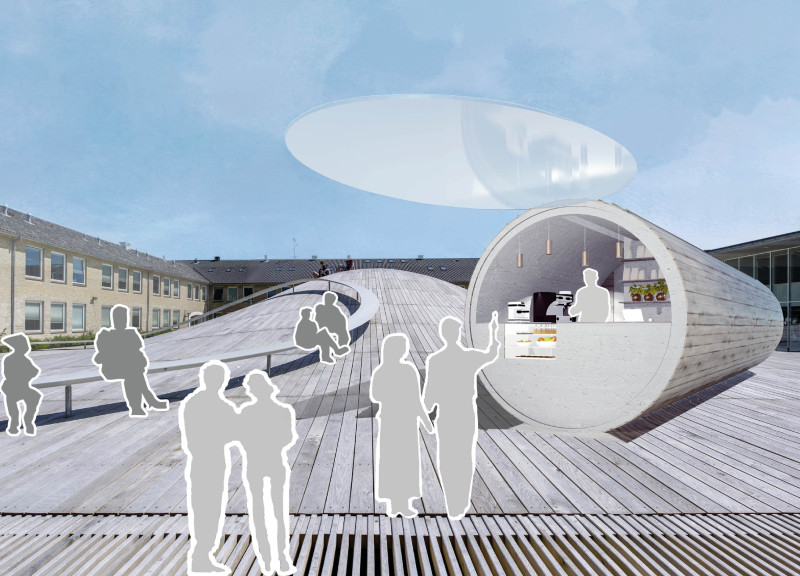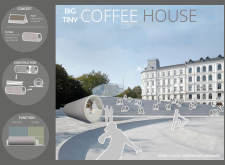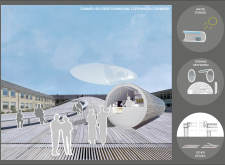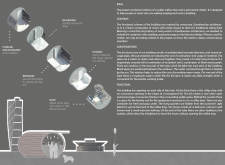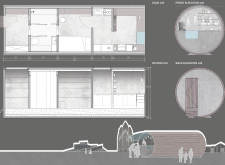5 key facts about this project
The project at Israels Plads in Copenhagen combines a public coffee shop with affordable housing, addressing social and community needs. It aims to create a space where people can gather while also providing homes for those seeking shelter. The design draws influence from traditional Scandinavian architecture, particularly the linear forms found in Viking structures, giving it a sense of historical continuity.
Design Concept
The central idea is to support individuals in need of work and housing. The layout encourages interaction among users while also offering private living spaces. A linear organization of rooms allows for easy movement through the building, connecting communal areas with residential units.
Functional Layout
Large openings on each side of the structure ensure ample light and fresh air. The coffee shop features a unique transparent lid that not only serves as the entrance but also invites people to engage with the space. This feature enhances the building's visual appeal while promoting social interaction and activity in the surrounding area.
Interior Organization
Inside, the building separates essential functions, such as the coffee shop and living quarters. The coffee shop includes a service area equipped with necessary equipment and storage for water. This practical design meets the users' needs while maintaining a welcoming atmosphere. The private areas are strategically placed behind the coffee shop, allowing residents to retreat to their own space without losing the sense of community.
Material Considerations
The structure employs prefabricated concrete elements and reused sewage pipes. Such material choices highlight a focus on sustainability and responsible construction practices, minimizing waste and costs. Using prefabricated materials facilitates efficient assembly and emphasizes the project’s environmental awareness within a busy urban setting.
The arrangement of windows throughout the structure allows passersby to peek into the living areas, creating a connection between inside and outside. This design invites curiosity while ensuring that the boundaries between public and private spaces remain fluid.


